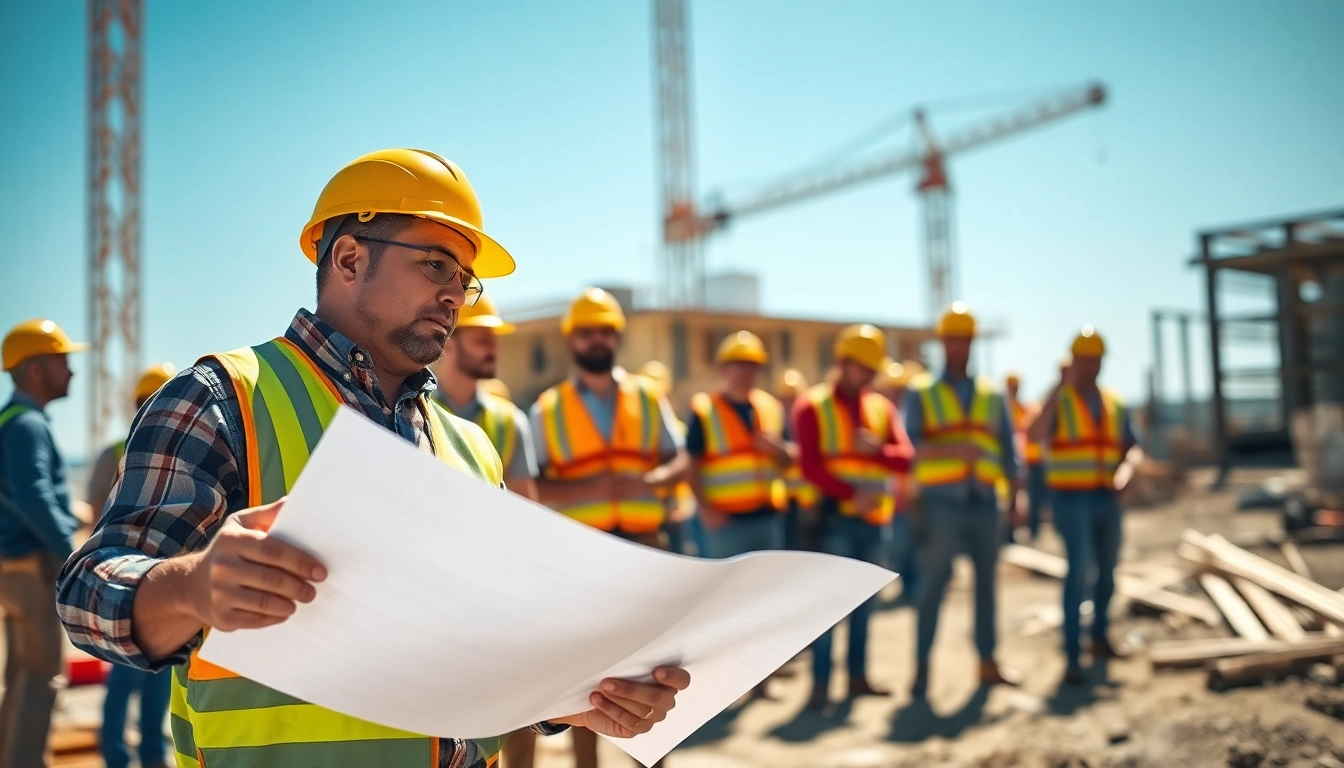
Understanding the Role of a New York City Commercial General Contractor
When embarking on a construction project in New York City, understanding the role of a New York City Commercial General Contractor is crucial. These professionals act as the backbone of any commercial endeavor, orchestrating the various components of a project to ensure it runs smoothly, on time, and within budget. The bustling metropolis has its unique set of challenges, and a competent general contractor can navigate these hurdles to deliver a successful project.
What Sets General Contractors Apart?
General contractors are pivotal figures in the construction landscape. They are responsible for overseeing the entire construction process, coordinating subcontractors, managing budgets, and ensuring compliance with codes and regulations. Unlike specialty contractors who focus on specific trades (like plumbing or electrical work), general contractors possess a broad understanding of all aspects of construction. This holistic view allows them to manage projects effectively from beginning to end.
Moreover, general contractors often have established relationships with suppliers and subcontractors, which can lead to better pricing and scheduling flexibility. They also serve as the main point of contact for clients, simplifying communication and project management.
Key Services Offered by New York City Commercial General Contractors
The services provided by commercial general contractors in New York City vary widely but typically include:
- Project Management: Overseeing the entire construction process, from pre-construction planning to project completion.
- Budgeting and Cost Estimation: Developing accurate estimates of project costs and managing expenditures.
- Scheduling: Creating timelines and schedules to ensure timely project delivery.
- Subcontractor Coordination: Hiring and managing various subcontractors to complete specialized aspects of the project.
- Contract Negotiation: Negotiating contracts with clients and subcontractors to protect all parties’ interests.
Assessing Your Project Needs with a New York City Commercial General Contractor
Before starting any construction project, it is essential to assess your specific needs. Engaging with a New York City Commercial General Contractor enables you to define your project’s scope, budget, and timeline effectively. This assessment is crucial for aligning expectations and ensuring the project’s success.
Defining Your Project Scope and Budget
The first step in any construction project is to define what you want to achieve. This includes specifying the type of construction (e.g., office space, retail outlet, or industrial facility) and the essential features you want to incorporate. Once you have a clear vision, you can work with a general contractor to translate this into a feasible project scope and budget.
A detailed budget should encompass not just construction costs but also permits, design fees, and unexpected expenses. A good contractor can provide you with cost-benefit analyses to ensure you’re allocating your resources wisely.
Common Challenges in Commercial Construction Projects
Commercial construction in New York City is fraught with challenges, including:
- Regulatory Hurdles: Navigating the city’s complex zoning laws and building codes can be daunting.
- Site Limitations: Working within space-constrained urban environments can affect logistics and planning.
- Labor Shortages: Finding qualified labor can be a struggle due to the high demand for construction work.
Understanding these challenges early on allows for strategic planning and mitigation strategies to be put into place.
Best Practices for Project Planning
A well-laid project plan is critical to minimize risks and ensure timely completion. Best practices include:
- Detailed Documentation: Keep thorough records of plans, contracts, and communications to ensure transparency.
- Regular Meetings: Hold consistent progress meetings with your contractor to address issues as they arise.
- Flexibility: Be prepared to adapt plans based on new information or unforeseen circumstances.
The Importance of Licensing and Insurance for Contractors
In the competitive landscape of New York City construction, ensuring that your contractor has the appropriate licenses and insurance is non-negotiable. This protects not only your investment but also the safety of everyone involved in the project.
Understanding Licensing Requirements in New York City
In New York City, general contractors must be licensed to operate legally. Licensing requirements vary depending on the nature of the project, which can include special permits for public projects or additional certifications for specialized trades. Prospective clients should verify that a contractor holds all necessary licenses and is compliant with local regulations.
How Insurance Protects Your Investment
Insurance is another essential aspect of hiring a contractor. Adequate insurance protects both parties from potential liabilities arising from accidents or damage during construction. Key types of insurance to look for include:
- General Liability Insurance: Covers damages to property or injury to individuals on-site.
- Worker’s Compensation: Protects against injuries sustained by workers during the construction process.
Ensuring that your contractor is properly insured can provide peace of mind and protect your financial interests.
Verification Steps for Contractor Credentials
Before hiring a general contractor, take the necessary steps to verify their credentials:
- Check their licensing status through the city’s Department of Buildings.
- Request proof of insurance and confirm coverage levels.
- Read reviews and testimonials from previous projects to gauge reputation and reliability.
Evaluating Proposals from New York City Commercial General Contractors
Once you have narrowed down potential general contractors, evaluating their proposals is critical to making an informed choice. A well-structured proposal can reveal much about the contractor’s understanding of your project and their capability.
Key Factors to Consider in Contractor Bids
When reviewing bids, consider the following factors:
- Comprehensiveness: Does the bid include all necessary aspects of the project?
- Pricing: Compare bids on price, but also consider what is being offered for that price.
- Timeline: Assess whether the proposed schedule is realistic and aligns with your expectations.
Understanding Cost Structure and Payment Terms
Additionally, understanding how costs are structured is crucial to avoid surprises later on. Look for:
- Fixed Costs vs. Variable Costs: Understand what elements of the proposal are quoted as fixed and which are estimated.
- Payment Schedules: Ensure that payment terms are clear and align with project milestones.
Interpreting Project Timelines in Proposals
Timelines outlined in proposals should detail key milestones and deadlines. Delve deep into whether timelines allow reasonable transition periods for subcontractors and avoid bottlenecks due to interdependencies.
A well-defined timeline is not just a visual aid; it’s an essential tool for managing your project efficiently and ensuring everything remains on track.
Maintaining Effective Communication with Your Contractor
Once you’ve selected your New York City Commercial General Contractor, establishing a clear communication framework is vital. Effective communication fosters collaboration and helps mitigate misunderstandings or conflicts that could derail your project.
Establishing Expectations from Day One
Setting clear expectations from the onset is essential. Have upfront discussions about:
- Roles and responsibilities of all parties involved.
- Preferred methods and frequencies of communication.
- Protocols for addressing conflicts or changes in the project scope.
Strategies for Regular Progress Updates
Regular updates keep everyone informed and engaged. Consider implementing:
- Weekly or bi-weekly status meetings.
- Progress reports detailing accomplishments and upcoming tasks.
- A shared platform or software for real-time updates and document sharing.
What to Do When Issues Arise
Inevitably, challenges will arise during any construction project. Establishing a protocol for addressing these issues swiftly will mitigate potential setbacks. Key strategies include:
- Encouraging open lines of communication so concerns can be addressed immediately.
- Documenting issues, solutions proposed, and outcomes to maintain accountability.
- Being flexible and open to alternative solutions proposed by your contractor.
In conclusion, navigating the complexities of commercial construction in New York City requires knowledgeable, diligent, and experienced partners. A robust understanding of the commercial general contractor’s roles, responsibilities, and the intricacies of working with them will set the foundation for a successful project. By following the guidelines laid out in this article, you will ensure a clear path toward executing your vision while aligning with industry best practices.




